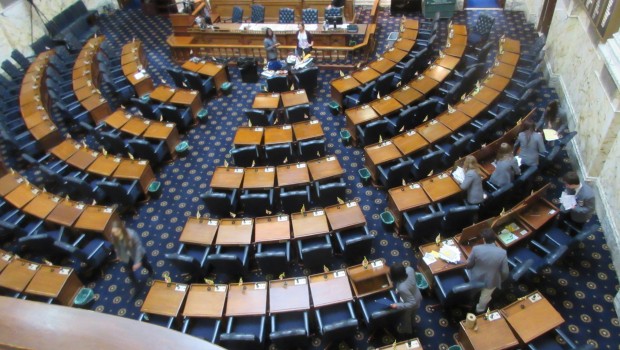Maryland House passes major changes to public records access
By MarylandReporter.com
Major changes to the Public Information Act have now passed both the House and Senate in essentially the same form.
HB755 passed the House Wednesday 139-1, and SB695 passed the Senate unanimously March 25.
“This is a big step forward,” said Del. Dan Morhaim, the floor leader and a long-time champion of open government and transparency measures. The legislation makes the Public Information Act more understandable, reasonable and fair, Morhaim said.
The bill replaces inconsistent enforcement of current law with more standardized procedures for obtaining public records and documents. This includes a new ombudsman in the Office of the Attorney General to give guidance and mediate requests from all levels of government. There is also a new Public Information Compliance Board that will rule on fees that can be charged.
The Senate must now act favorably on the House version of the bill.
Morhaim said that the Senate committee was kept informed of the House’s work on the measure, including changes requested by the governor’s office.
“Today, Maryland took an important step towards more open, transparent government,” said Jennifer Bevan-Dangel, executive director of Common Cause Maryland. “This legislation is the result of many hours of discussion and compromise.”
Firmer time limits, more reasonable fees
The bill also establishes firmer time limits for responding to public records requests and says that custodians of documents and data can only charge the “actual” costs of the search and preparation of the information.
“This legislation is not only much-needed and long-overdue,” said Rebecca Snyder, executive director of the Maryland, Delaware, D.C. Press Association, “but it is also extremely popular,” citing recent poll results.
Environmental groups say they are among the organizations that have been stymied by Maryland’s current laws when requesting public information.
“This legislation will make it easier for Marylanders to get public information they deserve to see,” said Betsy Nicholas, executive director of Waterkeepers Chesapeake. “But the passage of this bill is not the end of this story. We will continue working to get better access and accountability from government as well as industries that receive public subsidies.”
Provisions of the original bill that covered the reports filed by individual farmers were removed by both House and Senate committees.

MarylandReporter.com is a daily news website produced by journalists committed to making state government as open, transparent, accountable and responsive as possible – in deed, not just in promise. We believe the people who pay for this government are entitled to have their money spent in an efficient and effective way, and that they are entitled to keep as much of their hard-earned dollars as they possibly can.

